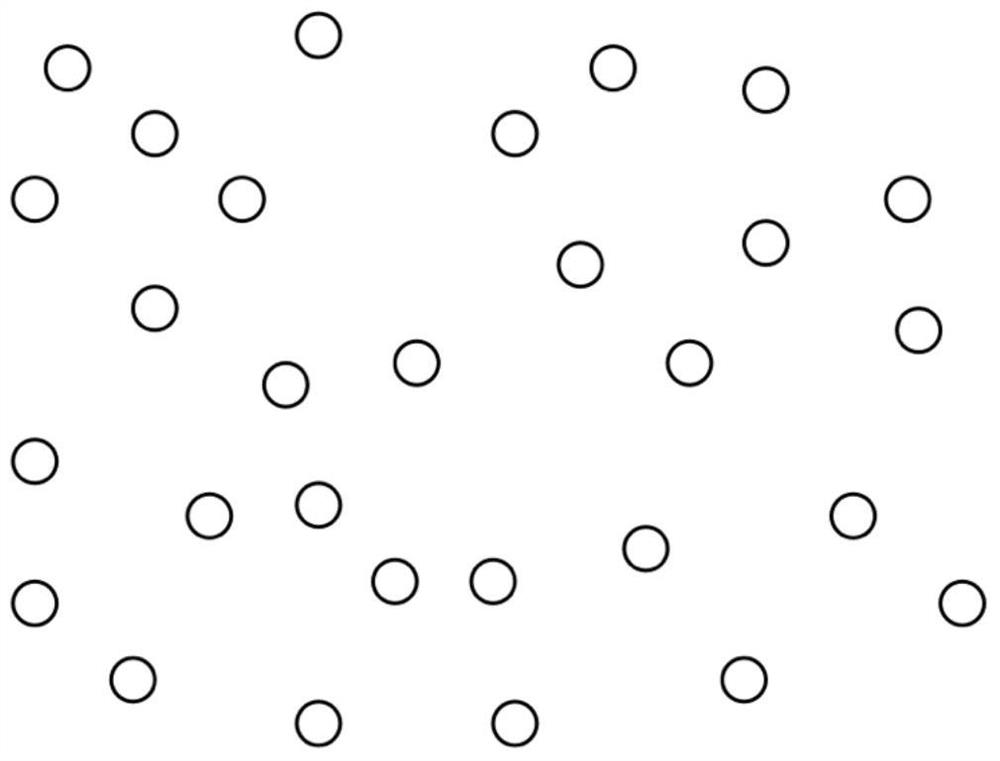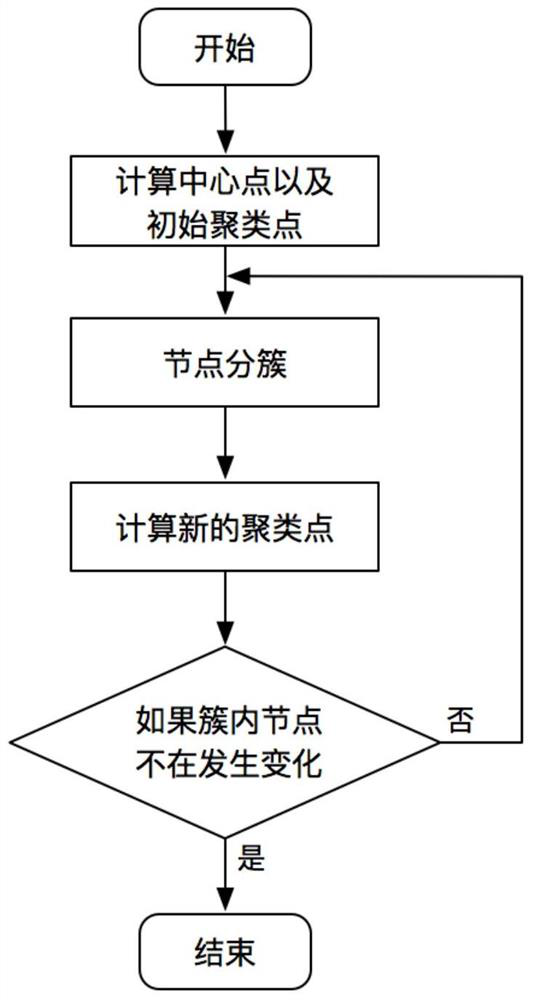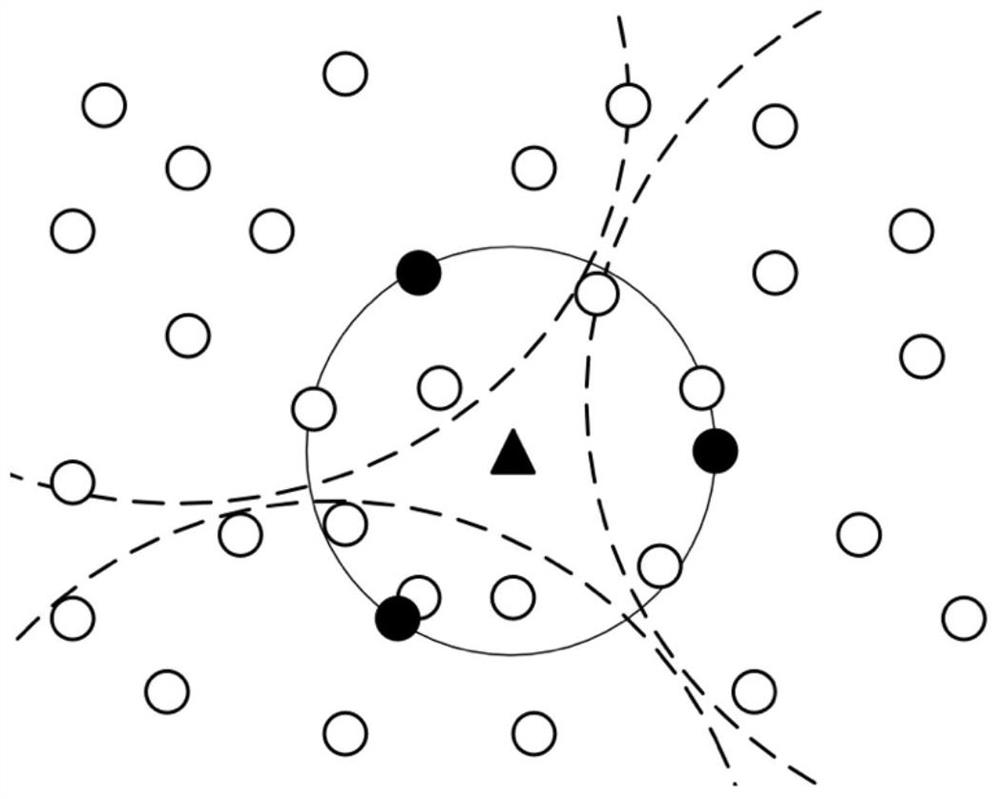A clustering method for wireless sensor networks based on k-means
A wireless sensor and sensor technology, applied in network topology, wireless communication, advanced technology, etc., can solve problems such as accelerating energy consumption, shortening survival time, and increasing transmission distance
- Summary
- Abstract
- Description
- Claims
- Application Information
AI Technical Summary
Problems solved by technology
Method used
Image
Examples
Embodiment Construction
[0020] It is easy to understand that, according to the technical solution of the present invention, those skilled in the art can imagine various implementations of the k-means-based wireless sensor network clustering method of the present invention without changing the essence of the present invention. Therefore, the following specific embodiments and drawings are only exemplary descriptions of the technical solution of the present invention, and should not be regarded as the entirety of the present invention or as a limitation or limitation on the technical solution of the present invention.
[0021] figure 1 Shown is a schematic diagram of a wireless sensor network structure, a lot of sensor nodes are distributed in an area, and the sensor nodes are represented by circles in the figure.
[0022] Such as figure 2 As shown, the wireless sensor network node clustering method based on k-means proposed by the present invention includes the following steps:
[0023] First, calc...
PUM
 Login to View More
Login to View More Abstract
Description
Claims
Application Information
 Login to View More
Login to View More - R&D
- Intellectual Property
- Life Sciences
- Materials
- Tech Scout
- Unparalleled Data Quality
- Higher Quality Content
- 60% Fewer Hallucinations
Browse by: Latest US Patents, China's latest patents, Technical Efficacy Thesaurus, Application Domain, Technology Topic, Popular Technical Reports.
© 2025 PatSnap. All rights reserved.Legal|Privacy policy|Modern Slavery Act Transparency Statement|Sitemap|About US| Contact US: help@patsnap.com



